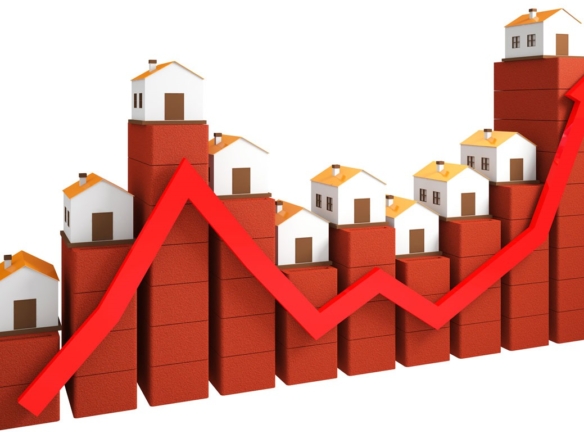Understanding The Role Of A Property Manager
A property manager serves as the link between property owners and tenants, ensuring smooth operations and protecting real estate investments. In Minnesota, understanding core responsibilities and reasons for hiring a property manager is essential.
Key Responsibilities Of A Minnesota Property Manager
- Tenant Management: Screening prospective tenants, ensuring lease compliance, and addressing tenant concerns. For example, organizing background checks or resolving maintenance requests efficiently.
- Rent Collection: Establishing rent schedules, processing payments, and managing past-due accounts to maintain cash flow.
- Property Maintenance: Coordinating regular inspections, handling repairs, and employing reliable contractors to retain property value.
- Legal Compliance: Ensuring adherence to Minnesota landlord-tenant laws to mitigate legal risks. Examples include preparing accurate rental agreements and managing eviction proceedings according to state regulations.
- Financial Oversight: Creating monthly income and expense reports, budgeting for maintenance, and tracking property-related costs.
Why Hiring A Property Manager Is Important
Expert Market Knowledge: A Minnesota property manager brings in-depth understanding of local rental trends and market dynamics. This ensures accurate property pricing and minimizes vacancy periods.
Time Savings: Delegating day-to-day operations allows me to focus on other priorities without sacrificing property performance.
Professional Network: Managers often collaborate with trusted vendors, legal experts, and contractors, securing cost-effective solutions and timely responses.
Improved Tenant Retention: Proper communication and prompt resolution of issues foster stronger tenant satisfaction and reduce turnover rates.
Risk Reduction: Ensuring compliance with rental laws and performing thorough tenant screenings minimizes potential risks, such as legal disputes or property damage.
Qualities To Look For In A Minnesota Property Manager
A property manager’s qualities directly impact the success of real estate investments. Evaluating these key attributes ensures alignment with my goals and expectations.
Experience And Expertise In The Local Market
Extensive knowledge of Minnesota’s property market drives effective management. Understanding local laws, rental rates, and market trends ensures accurate decision-making. For example, familiarity with Minneapolis’s landlord-tenant regulations helps avoid legal risks.
Strong Communication Skills
Clear and consistent communication helps maintain trust and transparency. I value prompt updates on tenant issues, property maintenance, and financial reports. Accessible managers ensure streamlined coordination and fewer misunderstandings.
Proven Track Record And References
A demonstrated history of success reflects reliability. Positive reviews from current clients, testimonials, and a high tenant retention rate indicate effective management practices. I ask for recent references to verify credibility before making a decision.
Services Offered By Minnesota Property Managers
Effective property management requires a range of specialized services to ensure smooth operations and maximize investment returns. Below are key services offered by Minnesota property managers.
Tenant Screening And Leasing Services
Property managers in Minnesota handle tenant selection to minimize risks and ensure reliable occupancy. I verify rental applications, conduct background checks, and assess credit history. These steps confirm tenant reliability before lease agreements are established. I also draft and execute legally compliant lease agreements that protect the property owner’s interests while adhering to Minnesota rental laws.
Property Maintenance And Repairs
Maintaining a property’s condition is essential to preserving its value and preventing long-term damage. I coordinate regular inspections, schedule routine upkeep, and respond promptly to repair requests. I also manage relationships with licensed vendors, ensuring professional work at competitive rates. Emergency repair services are included to address unexpected issues that could disrupt tenant satisfaction or affect compliance with safety standards.
Financial Management And Reporting
Accurate financial oversight ensures transparency and efficient property operations. I collect rent, process payments, and handle security deposit management. I also prepare detailed monthly and annual financial reports, including income statements and expense breakdowns. I utilize property management software to track cash flow and provide property owners with real-time access to financial records.
Important Certifications And Licenses
Certifications and licenses ensure that property managers demonstrate professionalism, expertise, and compliance with legal requirements. For Minnesota property owners, verifying these credentials is essential for effective property management services.
Property Management Certifications To Consider
I first evaluate a property manager’s industry-recognized certifications, as these indicate specialized training and knowledge. Common certifications include:
- Certified Property Manager (CPM): Offered by the Institute of Real Estate Management, this certification reflects advanced expertise in financial and operational management.
- Residential Management Professional (RMP): Granted by the National Association of Residential Property Managers, this certification emphasizes hands-on experience in residential property management.
- Master Property Manager (MPM): Also from the National Association of Residential Property Managers, this signifies a high level of professional achievement and skill.
These certifications indicate a dedication to professional standards and continuing education, which contributes to better tenant relations and property performance.
Compliance With Minnesota Property Laws
I ensure that property managers operate with appropriate licensure to comply with Minnesota state regulations. Minnesota requires property managers engaged in leasing, collecting rents, or managing properties to hold a real estate broker’s license, as mandated by the Minnesota Department of Commerce.
I look for property managers knowledgeable about federal and local legal requirements, including Fair Housing Laws, security deposit regulations, and eviction proceedings specific to Minnesota. These legal competencies help minimize risks related to compliance violations or tenant disputes.
Questions To Ask A Prospective Property Manager
Evaluating a property manager involves direct inquiries to assess their expertise, operations, and compatibility with your investment goals. Asking targeted questions ensures better alignment and avoids future misunderstandings.
Experience With Similar Properties
Understanding their experience with properties like yours is essential. I ask how many properties they currently manage that are similar in size, type, and location to mine. For example, if I own a multi-family rental in Minneapolis, I confirm their expertise in handling multi-family units in urban environments. I also inquire about past challenges they have faced with comparable properties and how they resolved them. This gives insight into whether their experience aligns with my property’s specific demands.
Policies For Handling Repairs And Emergencies
Knowing their approach to maintenance and emergencies is crucial. I ask about their protocol for managing urgent issues like heating failures during winter or significant water damage. I also confirm the timeline for responding to tenant-reported problems and the vendors they rely on for repairs. For example, I ask if they use licensed contractors or offer in-house repair services. This helps me determine if their practices align with my quality standards while ensuring tenant satisfaction.
Fee Structure And Additional Costs
Transparency in pricing is vital during the selection process. I request a detailed breakdown of fees, including monthly management fees, leasing fees, and any additional costs, such as vacancy advertising or eviction coordination. I ask for clarification on contingency charges, such as markups on maintenance expenses. For example, if they charge 10% of repair costs as an administrative fee, I factor this into the overall cost evaluation. Understanding the complete fee structure prevents unexpected financial surprises.
Common Issues When Hiring A Property Manager
Selecting a property manager involves careful evaluation to avoid challenges that could affect your investments. Below are common issues to consider when making a decision.
Hidden Fees Or Unclear Contracts
Identifying hidden fees in contracts is crucial for avoiding unexpected expenses. I carefully review the management agreement to ensure transparency in cost structures, including management fees, lease renewal charges, and maintenance markups. If fees are vaguely defined or additional costs are not clearly stated, disputes may arise, damaging the professional relationship.
Inefficient Communication
Effective communication is a core aspect of property management. I assess how promptly a property manager responds to my inquiries or addresses tenant concerns. Poor response times or unclear updates can lead to unresolved issues, tenant dissatisfaction, and diminished trust in the manager’s abilities.
Lack Of Attention To Property Details
A property manager’s negligence in addressing property-specific needs can result in maintenance delays and declining property value. I expect regular inspections, timely repairs, and proactive upkeep to protect my investment. If minor issues are consistently overlooked, they can escalate into larger problems, increasing expenses and tenant turnover.
Tips For Making Your Final Decision
Evaluating all aspects helps in choosing the right property manager in Minnesota. Focus on comparing candidates and reviewing contracts to ensure an informed choice.
Comparing Multiple Candidates
I assess multiple property managers to identify the most suitable option. Comparing experience levels, local market knowledge, and customer feedback highlights key distinctions. For instance, I verify how extensively each candidate has managed properties similar to mine in Minnesota. Communication practices, such as response times and updates, reveal their ability to manage tenant relations effectively.
I explore client testimonials and case studies to ensure credibility. Ratings or reviews from credible platforms like Better Business Bureau (BBB) and Google Reviews provide insights into each candidate’s reputation. I also consider their fee structures, ensuring there are no extra charges buried in the total costs.
Reviewing Contracts Thoroughly
I review management agreements meticulously to avoid potential disputes. Clearly defined roles and responsibilities prevent misunderstandings. Important sections include the scope of services, fee breakdowns, timelines for things like rent collection, and processes for handling emergencies. For example, I ensure that maintenance and repair clauses specify who authorizes services and the level of expense approval required.
Clauses related to termination policies stand out as critical for flexibility. I confirm compliance with Minnesota’s legal requirements by confirming licensing details in the contract. Any ambiguities in clauses or terms prompt me to seek clarification before finalizing the agreement.
Conclusion
Choosing the right property manager in Minnesota is a decision that can significantly impact the success of your real estate investment. By focusing on expertise, professionalism, and alignment with your goals, you can ensure your property is managed effectively and efficiently. A thorough evaluation process, clear communication, and attention to detail are key to building a strong partnership with a property manager who will safeguard your investment and support its growth.




